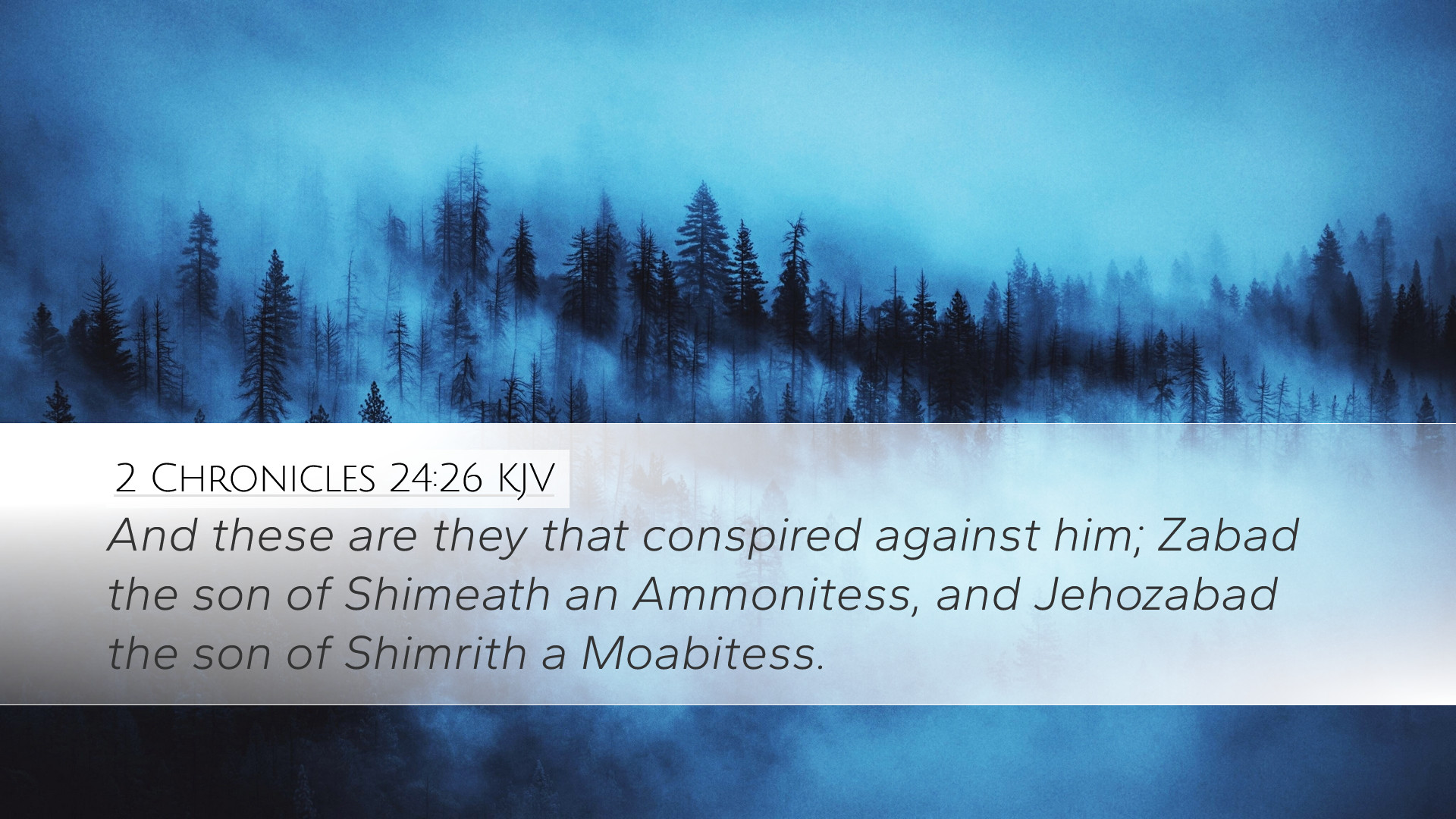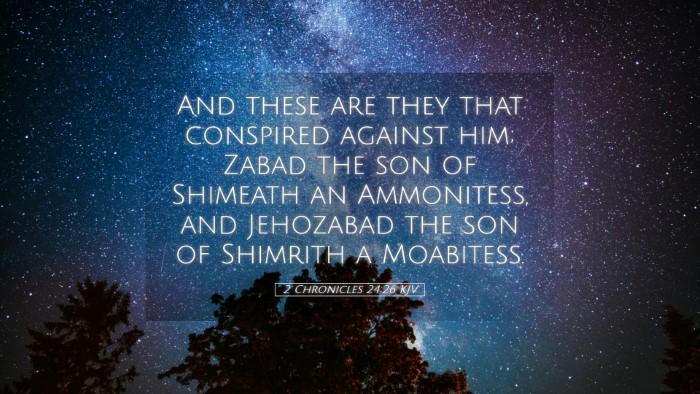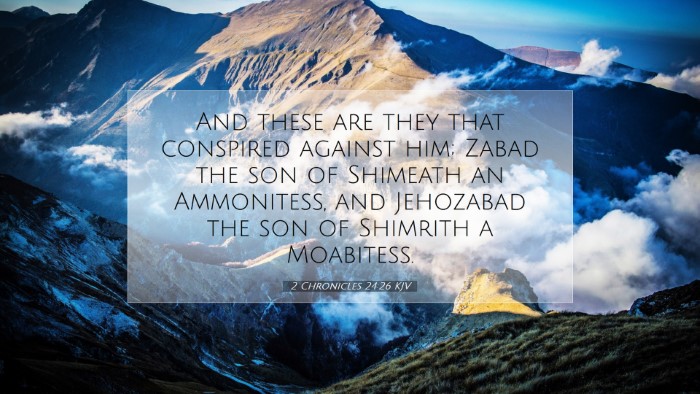Commentary on 2 Chronicles 24:26
In 2 Chronicles 24:26, we come across a pivotal moment in the history of Judah. This verse highlights the tragic fate of Zechariah, the son of Jehoiada the priest. The commentary that follows seeks to illuminate the theological and historical significance of this event, drawing from various public domain sources, including those of Matthew Henry, Albert Barnes, and Adam Clarke.
Text of the Verse
2 Chronicles 24:26 (KJV): "And these are they that conspired against him; Zechariah the son of Jehoiada the priest, and Mattaniah the son of Jehoiada, and the son of the king, and they conspired against him."
Contextual Background
The context of this verse takes us back to an epoch characterized by both spiritual revival and political intrigue. After the reign of Joash, who had initially been a faithful king guided by Jehoiada, the high priest, a significant shift occurs as Joash turns away from the worship of Yahweh. Following Jehoiada's death, Joash's allegiance wavers, leading to the conspiracy against Zechariah. This tumultuous time serves as a reminder of the fragility of faith amidst worldly pressures.
The Importance of Zechariah
Zechariah, the son of Jehoiada, stands as a symbol of prophetic authority and fidelity to God. He represents not only the continuation of Jehoiada's priestly legacy but also the voice of divine truth in a corrupted society. Matthew Henry notes that Zechariah's murder signifies not merely a political assassination but an assault on God's prophetic witness in the midst of Israel's spiritual decline.
The Conspirators and Their Motives
According to Albert Barnes, the conspirators against Zechariah were motivated by a desire to secure their own power amidst political instability. Notably, Mattaniah and the son of the king, acting in concert, reflect a coalition of betrayal driven by opportunism. The text illustrates the precariousness of leadership that, without commitment to divine standards, can easily succumb to the whims of personal ambition.
- Motives of Jehoiada’s Legacy: The conspirators sought to undermine Jehoiada's achievements by silencing his son.
- Idolatry and Apostasy: The conspiracy unfolded in the context of growing idolatry, which had emerged following Jehoiada’s death.
- Political Intrigue: The involvement of high-ranking individuals shows how deeply entangled faith and politics had become.
The Tragic Outcome
The consequences of Zechariah's death are severe, both spiritually and politically. Adam Clarke emphasizes that Zechariah, embodying the prophetic voice, was a divine instrument who warned Israel of its spiritual failures. His demise marks the culmination of a tragic trajectory, one that leads the people of Judah further into darkness as they reject God's guidance.
Spiritual Implications
The death of a prophet represents not merely an individual loss, but a collective tragedy for a nation. The rejection of prophetic voices leads to a lack of divine direction. This pattern resonates through biblical history, where the martyrdom of the faithful serves as a reflection of humanity's propensity to resist God's will.
Lessons for Today
For modern readers, this scripture invites a profound reflection on the cost of discipleship. The warning against the spirit of betrayal and conformity to corrupt powers serves as a call for believers to remain steadfast in their faith. The narrative of Zechariah challenges pastors, students, and scholars to discern the subtle encroachments of secular ideology within their own contexts.
Conclusion
2 Chronicles 24:26 stands as a stark reminder of the dangers that arise when leaders abandon their commitment to God. The story of Zechariah serves as a poignant illustration of the intersection of faith and politics, the hazards of spiritual apathy, and the consequences of silencing God's messengers. In applying these insights, contemporary believers are called to uphold the principles of truth and righteousness, echoing the legacy of Zechariah in their own lives.


